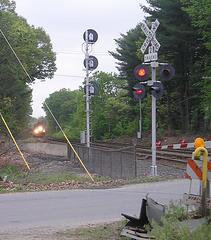 But in practice, very often, unfortunately, because of certain problems with the coach and not achieved the main objectives of the training. What means – professional / coach or competence? First, without a doubt, the coach should be professional in the field to which the topic of training. It should have a great experience, not just theoretical, that very often we can see in the seminars. Although it is in the seminars and it is permissible, since the goal still is a little different … Second, and this factor is no less important, it must be a professional trainer. Ability bring his knowledge to the listener and make the knowledge domain the listener does not necessarily combined in one person that owns this knowledge. Perhaps you came face to face with a situation where an experienced, knowledgeable person unable to explain why you need to do it one way or in another way …
But in practice, very often, unfortunately, because of certain problems with the coach and not achieved the main objectives of the training. What means – professional / coach or competence? First, without a doubt, the coach should be professional in the field to which the topic of training. It should have a great experience, not just theoretical, that very often we can see in the seminars. Although it is in the seminars and it is permissible, since the goal still is a little different … Second, and this factor is no less important, it must be a professional trainer. Ability bring his knowledge to the listener and make the knowledge domain the listener does not necessarily combined in one person that owns this knowledge. Perhaps you came face to face with a situation where an experienced, knowledgeable person unable to explain why you need to do it one way or in another way …
It just can not explain it, although he is a professional in a practice area … This is the second factor often becomes a problem. Example: company requests (or requires) the chief of department, professionals in their field, who's great at all and experience a huge, hold a seminar on a particular issue for staff in similar departments of other departments or new employees. The seminar is held, the money used, people spent time and the result …. Pros, after all, prefers to do everything myself, rather than trying to somehow educate others. Familiar situation? Also important factors are the criteria for forming a training group. The level of training of participants, gender characteristics, age-related parameters, the motivation of participants in training and much more – all it affects the end result of training and the quality of the training objectives.
Speaking in this small article about the difference between a seminar and training, it is worth mentioning such varieties of training, as training and public corporate training. Outdoor Training provides training for people in it are usually not familiar with each other as opposed to corporate training, which involves mainly the representatives of one company, most of which, as a rule, are usually already familiar with. For the seminar, this factor has practically no role, because the people most likely until the end and not made friends, and the needs of such a workshop there. For training, this factor is very important because it provides most of the techniques work in groups, and interpersonal relationships are beginning to play a significant role. That's what kind of atmosphere will create at the beginning of training, as will pan out circumvent conflicts, age level, service, and psychological differences between the members of the training group (as they always have, unfortunately), and will depend in no small measure to the overall result of training … Without a doubt, even in This small material affected by many, although far away, and not all the issues that relate to this form of training, as training and workshops. Nearly every paragraph deserves its own, and no small article and, of course, discussions – I hope they will, and the following articles and discussions. In summary, all the same let's assume for itself for the future: the seminar, and training – this form of training, each of which can be used effectively. At the same time: a workshop aimed at obtaining and sharing knowledge, training in the same breath but to achieve these important goals is to give participants new practical skills, or at least improve the existing …